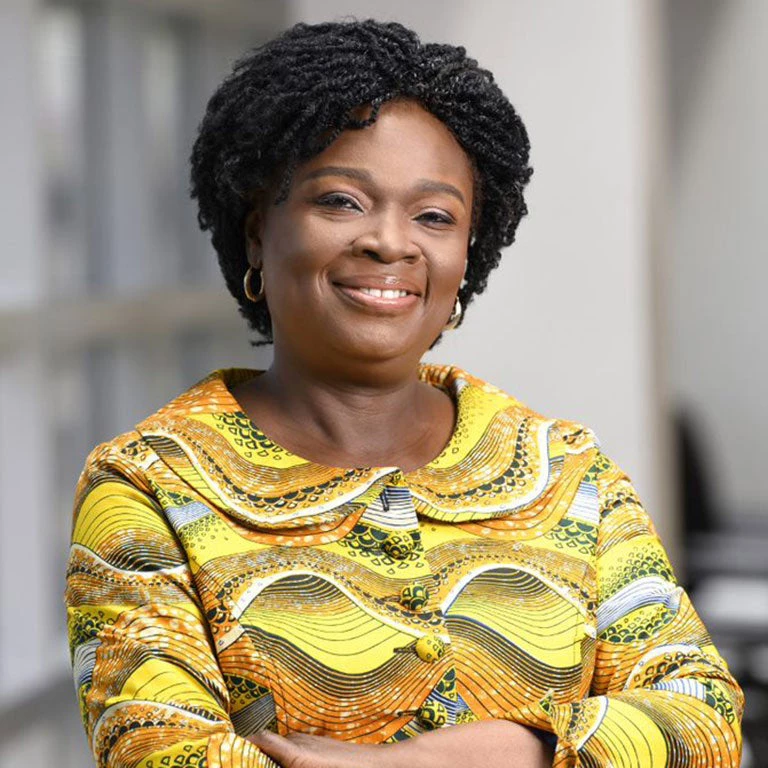 Mother and child sitting in front of newly terraced land in Ethiopia. Photo: Borgarello/ World Bank.
Mother and child sitting in front of newly terraced land in Ethiopia. Photo: Borgarello/ World Bank.
As I head to Federal Democratic Republic of Ethiopia on my first official visit as Vice President for Eastern and Southern Africa at the World Bank, I am eager to meet and engage with various stakeholders, policy makers, partners and trailblazers who are working tirelessly to help the country overcome a host of challenges and resume a path to inclusive and sustainable development. This visit is an excellent opportunity for me to learn more from our clients about how the World Bank can support the country as it recovers from multiple shocks and seeks to build resilience.
Over the past two decades, Ethiopia has been one of the fastest growing economies in the world. Significant inroads were made in improving the nation’s access to education, transportation (through new roads and light rail systems), basic health services, and clean water and sanitation. The World Bank played a vital role in assisting the Ethiopian government in these improvements, which greatly enhanced the quality of the lives of its citizens across the country. In 2022 alone, we supported the following achievements:
- Nearly 8 million people benefited from social safety nets that provided cash/food transfers
- 42 million COVID vaccinations were administered
- 5.8 million children and lactating mothers in conflict areas received essential health and nutrition services
- 24 million students were provided with improved educational supplies and rehabilitated facilities
- 150,000 people were provided with access to safe water
- Nearly 1.2 million Ethiopians were provided access to improved sanitation
- 424,000 people were provided with improved access to basic services (rural roads, small scale irrigation, emergency water supply) in lowland areas.
In spite of all of these accomplishments, the people of Ethiopia have been confronted with multiple challenges in the past few years that include:
- The health, social, and economic impacts of COVID-19 and associated containment measures;
- The devastating effects of the conflict in the North — specifically the human, infrastructure, health system, and educational losses; and
- Impacts of severe weather events, including drought in the south and east while there have been floods in the central highlands, as well as a historic 2020 locust infestation.
These challenges have placed a significant strain on the country’s economy and have undermined the positive advancement in key developmental areas. One in four Ethiopians is in need of humanitarian assistance. Millions of people are without access to health services, and children are still without educational services as a result of conflict and other shocks.
Yet, I see a positive future for Ethiopia. The country has every chance to return to a strong development path and deliver a better tomorrow for its people. The November 2022 signing of the Cessation of Hostilities Agreement and consequent silencing of the guns, delivery of humanitarian assistance, and restoration of services in the North are critical and encouraging. It will be important to ensure that the peace is sustained, and that conflict-affected areas can heal, recover, and rebuild. It is also important that parts of the country which have also endured other shocks are given the opportunity and resources to overcome their challenges and obtain greater prosperity. Additionally, it will be essential for the Government of Ethiopia to carry on its ambitious reform program to overhaul the country’s growth model, with a focus on facilitating private sector growth and investment, greater competition in key sectors, and nurturing stronger resilience. I recognize that such reforms are complex given the many challenges facing Ethiopia, but I believe that their successful implementation will catalyze accelerated and inclusive growth, providing a sustainable foundation for the country’s long-term prosperity.
Building on our decades of strong partnership with Ethiopia, I see the World Bank playing a central role in supporting this agenda of recovery, inclusive economic growth with sustainable peace dividends. My visit will give me the chance to take stock of our collective progress, assess challenges and review the opportunities that will carry our work forward. I am looking forward to discussions with Ethiopian authorities as well as with private sector and other stakeholders on how to deliver peace dividends with a revitalized social contract, enhance resilience and reduce inequality. I am keen to get a firsthand understanding of the dynamics around what it will take to improve the well-being of all Ethiopians, and especially the poor, including in a context of economic reforms. I am also excited about exploring ways to empower women including by bridging the gender digital divide .
Ultimately, my objective for this trip is to listen to the people of Ethiopia. I want to hear what we can do better to support the country and its people to realize an inclusive, prosperous future.


Join the Conversation